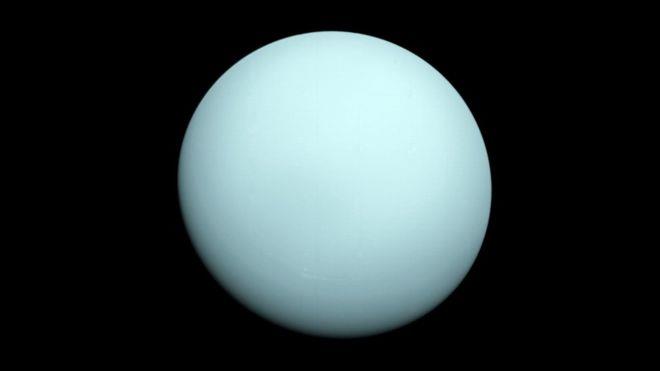LOS ANGELES, April 24 (Xinhua) -- The upper atmosphere of Uranus is composed largely of hydrogen sulfide, the same chemical compound that gives rotten eggs their bad odor, a study published in the latest issue of online journal Nature Astronomy says.
Even after decades of observations and a visit by NASA's Voyager 2 spacecraft, the composition of Uranus's clouds remained a critical secret of the planet.
However, recently, a global research team spectroscopically dissected the infrared light from Uranus captured by the eight-meter Gemini North telescope on Hawaii's Mauna Kea.
Scientists found hydrogen sulfide, the noxious-smelling gas that most people avoid, on Uranus's cloud tops.
"If an unfortunate human were ever to descend through Uranus's clouds, they would be met with very unpleasant and odiferous conditions," lead author of the study Patrick Irwin from the University of Oxford said.
The detection of hydrogen sulfide high on Uranus's cloud deck (and presumably Neptune's) is a striking difference from the gas detected in the giant planets closer to the Sun, Jupiter and Saturn -- ammonia.
The bad odor is not likely to be the top challenge for any possible visitor to Uranus. According to Irwin, "Suffocation and exposure in the negative 200-degrees Celsius atmosphere made of mostly hydrogen, helium and methane would take its toll long before the smell."
